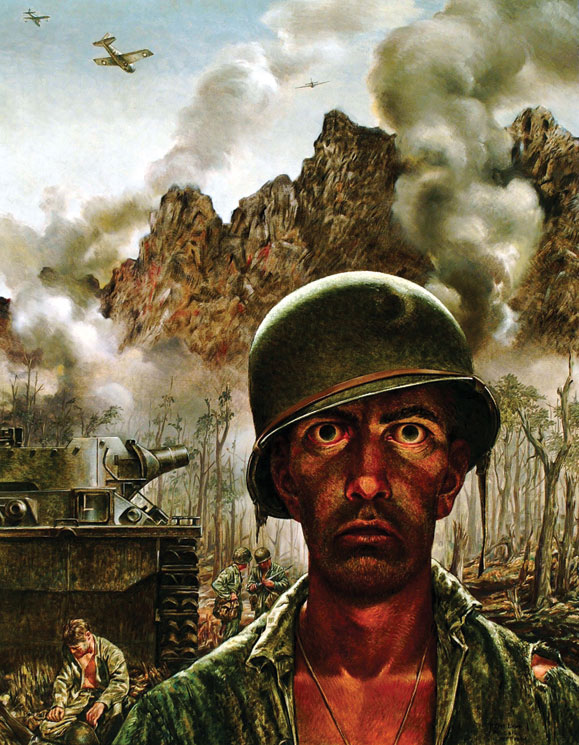Victory in Europe Day
Today, in commemoration of the 70th anniversary of Victory in Europe Day, I repost a column that I wrote for V-E Day 2011. It includes a poem where my father looks back at his World War II experiences.
War veterans are caught in a wrenching dilemma: to find relief they must talk about experiences that no one should ever have to go through or, for that matter, hear about. The poem below, one of the few instances of my father writing about his experiences in World War II, captures this dilemma.
The “Mike” in the poem is my son Toby. My father was an interpreter in the war, landing in France a couple of weeks after D Day. While Tom Brokaw and others have sung the praises of “the greatest generation” and lauded their performance in “the good war,” my father is skeptical of the “greatest” designation (thus the quotation marks around his title). He also shares the perspective of documentarist Ken Burns that World War II was not the good war but “the worst war.” He was in Munich when he heard about the dropping of the atom bomb on Hiroshima and felt that the United States had just forfeited any claims of moral superiority. He went on to become a lifelong member of the War Resisters League.
Like many children of World War II vets, I didn’t hear many of my father’s stories until late in life. My father wasn’t involved in any actual fighting, but he was in Avranches when it was bombed (he remembers fatalistically staying upstairs reading a book in the hotel where the soldiers were billeted rather than going down to the basement), and he barely missed being sent to the Battle of the Bulge. Although he had been specially trained to be a French interpreter, he spent most of the war as part of the occupying force in Germany.
Many baby boomers in the 1960’s complained about the reserve of their fathers. While I didn’t go through the same rebellion–indeed, when I got arrested in an anti-war sit-in after the Kent State shootings, my father told me he would have come and gotten arrested with me if he had known my plans–I wonder how much of the “generation gap” was caused by our fathers having seen things that they couldn’t pass along to us. For instance, my father saw the concentration camp at Dachau three days after it was liberated. The experience changed him permanently: raised the son of teatotalling Congregationalist Republicans in Evanston, Illinois, he returned from the war a drinking and smoking atheist who had voted for Roosevelt in 1944.
As he says in his poem, when we think of World War II vets we conjure up images of battle greatness. My father is great because of the humane vision he brought back with him. That vision is at the heart of who I am. I can’t begin to express my gratitude.
“The Greatest Generation”
By Scott Bates
“What was the Second World War like?”
I am asked by my youngest grandson, Mike,
Who has just remembered that he has
To write a paper for his English class
And hopes his grandfather will tell him a story
Like Private Ryan, full of guts and glory.
“That’s easy,” I answer—I am the One
Who Was There, the Expert, the Veteran–
(Who has read in the paper, by the way,
That thousands of vets die every day),
“It was boring, mostly,” I say, “and very
Gung-ho.” I think. “It was pretty scary.
And long. And the longer it got, the more idiotic
It seemed.” I stop. “It was patriotic.”
How to tell the kid the exciting news
That we survived on sex and booze.
And hated the Army and hated the War
And hoped They knew what we were fighting for . . . .
And I remember my buddy, Mac,
Who got shot up in a tank attack,
And Sturiano, my closest friend . . .
It is still going on. How will it end?
“It was people surrounded by dying men.”
“But what was it like?” asks Mike again.


